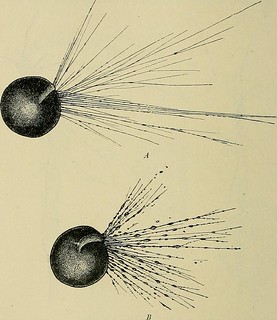- Creation
-
Creator (Definite): Robert Michael BrainDate: 2009
- Current Holder(s)
-
- No links match your filters. Clear Filters
-
Cited by
 Henri Bergson's Physiological Psychology: Vitalism and Organicism at the Start of the Twentieth Century
Henri Bergson's Physiological Psychology: Vitalism and Organicism at the Start of the Twentieth Century
Description:'Though the notion that the body was permeated by a fibrous network of nerves through which organs communicated had been prominent in physiology prior to the nineteenth century, this had been sidelined as the cell theory had been established. In 1869 however, Thomas Henry Huxley had prominently declared protoplasm the 'physical basis of life'. First propounded by Max Schultze in 1860, it had been Haeckel who presented the most influential discussion of its relevance to psychology. As Robert Brain notes, Haeckel's contention that that protoplasm 'had the ability to receive and maintain the waveform vibrations of the external world' and thereby pass on organic characteristics from one generation to the next achieved great prominence during the late nineteenth and early twentieth centuries. Haeckel further argued that a protoplasmic capacity for the reception and storage of wave-forms endowed cells with psychological capacity.'
-
Cited by
 T. Quick, 'Disciplining Physiological Psychology: Cinematographs as Epistemic Devices, 1897-1922', Science in Context 30 (4), pp. 423-474.
T. Quick, 'Disciplining Physiological Psychology: Cinematographs as Epistemic Devices, 1897-1922', Science in Context 30 (4), pp. 423-474.
Description:'As Brain notes, Haeckel's contention that that protoplasm 'had the ability to receive and maintain the waveform vibrations of the external world' and thereby pass on organic characteristics from one generation to the next achieved great prominence during the late nineteenth and early twentieth centuries. Haeckel further argued that a protoplasmic capacity for the reception and storage of wave-forms endowed cells with a psychological capacity (Brain 2009, on 94-95 and 101-104).'







